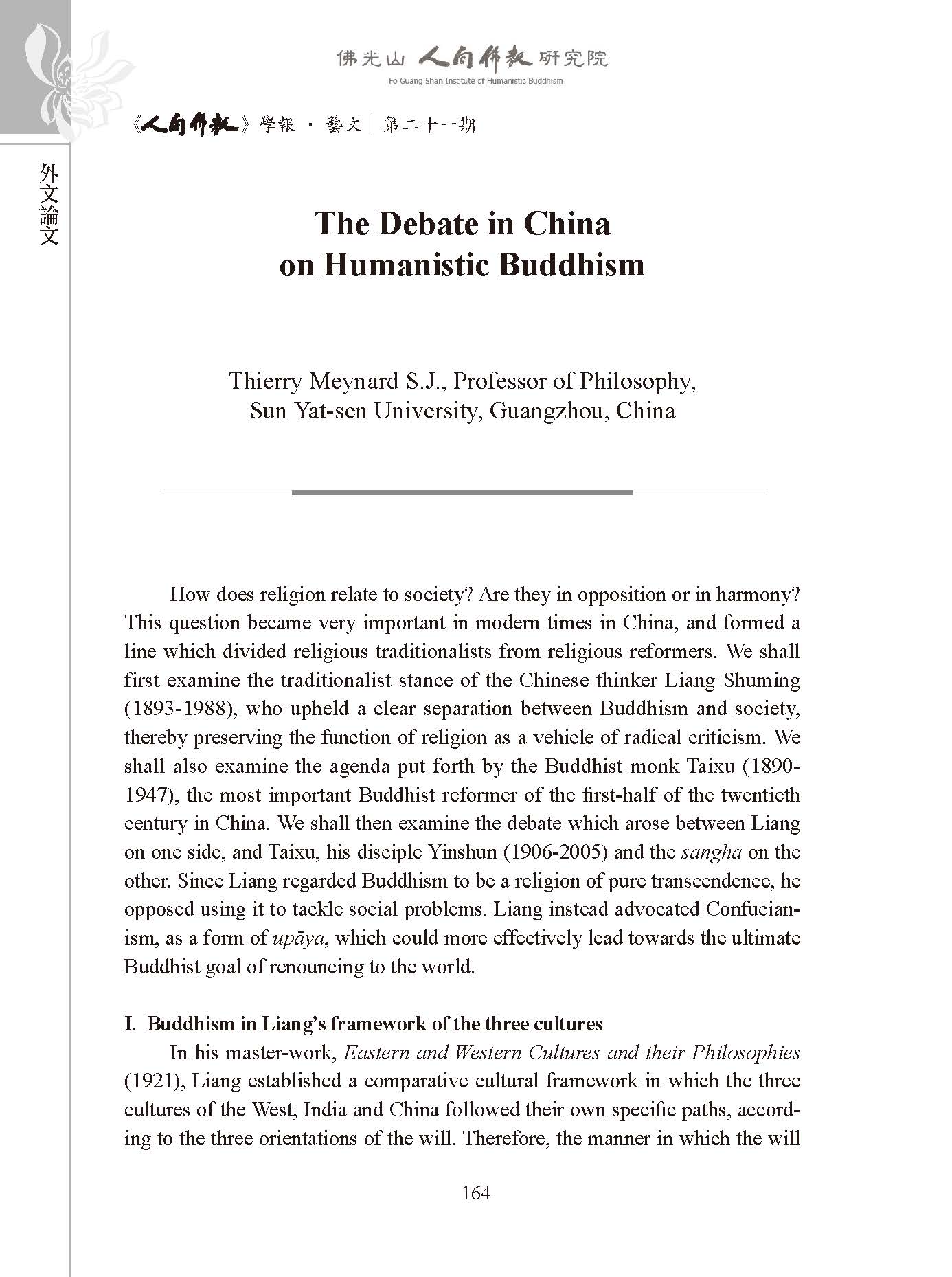
|
The Debate in China on Humanistic Buddhism
分類
論文
期別
《人間佛教學報‧藝文》第21期
作者
Thierry Meynard S.J
單位職稱
Professor of Philosophy, Sun Yat-sen University, Guangzhou, China
編者
妙凡、蔡孟樺主編
關鍵字
摘要
How does religion relate to society? Are they in opposition or in harmony? This question became very important in modern times in China, and formed a line which divided religious traditionalists from religious reformers. We shall first examine the traditionalist stance of the Chinese thinker Liang Shuming (1893-1988), who upheld a clear separation between Buddhism and society, thereby preserving the function of religion as a vehicle of radical criticism. We shall also examine the agenda put forth by the Buddhist monk Taixu (1890- 1947), the most important Buddhist reformer of the first-half of the twentieth century in China. We shall then examine the debate which arose between Liang on one side, and Taixu, his disciple Yinshun (1906-2005) and the sangha on the other. Since Liang regarded Buddhism to be a religion of pure transcendence, he opposed using it to tackle social problems. Liang instead advocated Confucianism, as a form of upāya, which could more effectively lead towards the ultimate Buddhist goal of renouncing to the world.
引文
Thierry Meynard S.J:〈The Debate in China on Humanistic Buddhism〉,收入妙凡、蔡孟樺主編:《人間佛教學報‧藝文》第21期,高雄:財團法人佛光山人間佛教研究院,2019年 04月,頁164-189。
全文下載











